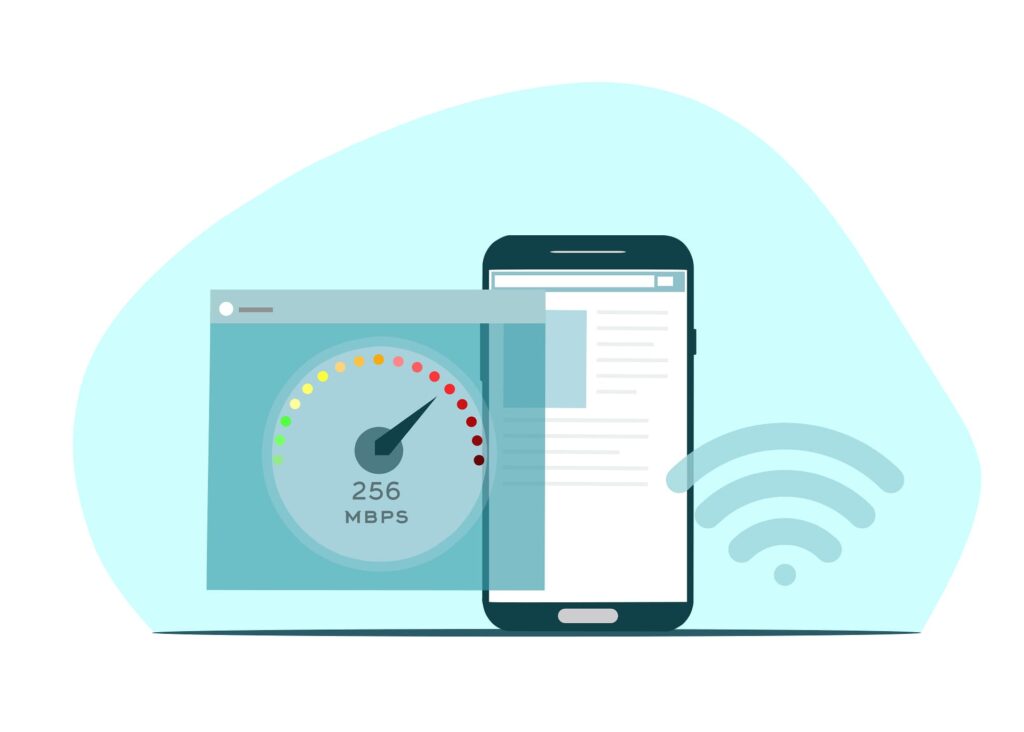Given the increasing reliance on mobile devices for online shopping, it’s essential to optimize e-commerce platforms for mobile use.
Historically, e-commerce transactions via mobile devices were facilitated through mobile websites, mobile apps, and hybrid apps. However, these platforms had certain drawbacks that stopped e-commerce entrepreneurs from fully engaging their target audience and delivering an optimal user experience.The quest for the ideal solution for mobile e-commerce continued and in 2015, a game-changing application was introduced: the Progressive Web App (PWA). PWAs sit at the intersection of native apps and traditional websites, incorporating the best features of both.Despite their existence for a few years, not all e-commerce entrepreneurs have adopted PWAs. Some might be unaware of what PWAs are or the significant benefits they can bring to their business.If you’re unfamiliar with this app type or have only heard about it tangentially, this article will provide a comprehensive understanding.
What are PWAs?
A common definition of a PWA is an app that merges the functionalities of a conventional website with those provided by Android and iOS apps, and this is indeed accurate.This innovative app type is essentially a responsive website developed using standard web development tools (HTML, CSS, and JavaScript), enhanced with a technology known as service workers.To access a PWA, you simply enter its URL into your browser, just like visiting a regular website. Once loaded, it can be installed on your device like a native app and can interact with several core functions of your device, such as the camera.A dialog box appears, asking if you wish to add the app to your smartphone, tablet, or occasionally desktop. After agreeing, the app’s icon is displayed on your device’s home screen.Now you can access the PWA by clicking on the icon, even without an Internet connection. The app’s publisher can send push notifications to your device, just like with native apps.While there are some limitations on the content a PWA can display in offline mode, unlike a conventional website that simply goes offline and displays a 404 error, a PWA shows some content as if it were still connected. This is one of many benefits of PWAs we’ll explore further.
Progressive Web Apps: Why They’re Ideal for E-Commerce
#1: Cost-Effective and Versatile — One PWA for All Platfo

Apple’s iOS and Google’s Android have effectively cornered the mobile market, leaving businesses with no other option but to cater to both operating systems.Creating separate apps for each platform can be costly, especially considering the steep pricing of native app development. The expense of building an app for iOS alone can reach tens of thousands of dollars. Add the cost of developing an Android app, and the financial burden becomes significant.
Advantages for E-Commerce Enterprises
Conversely, a PWA is underpinned by basic web technologies. Once developed, it runs flawlessly on any device, regardless of the operating system. Furthermore, a PWA is almost indistinguishable from a native app, complete with a home screen and offline functionality. This is a much more cost-efficient approach than building two separate apps.
#2: Streamlined and Efficient Installation Process for User

Setting up a native app on a device can be a lengthy and complex process. Moreover, developers must adhere to stringent criteria when submitting their apps to Google Play or the App Store.In contrast, acquiring a PWA is straightforward. Users access a PWA via a browser by simply typing its URL, just like any regular website. They don’t have to visit an app store, locate the app, and navigate through multiple steps to install it. This user-friendliness encourages more users to remain on your site.
Advantages for E-Commerce Enterprises
Since a URL is all that’s needed to access a PWA, it can be easily shared, drawing more potential customers to your e-commerce store in a short time.
#3: Maintain Customer Engagement with Push Notifications

To reiterate, PWAs are essentially websites harnessing the power of native mobile apps. One such power is the use of push notifications to stay in touch with your customers or potential clients once they’ve installed your app on their devices.
Advantages for E-Commerce Enterprises
With a PWA’s icon on the home screen, a push notification serves as a subtle reminder of your brand, even if the device owner decides not to open your message.Push notifications act as a potent sales/advertising tool, particularly for e-commerce enterprises. Some estimates suggest that over half of PWA users enable push notifications.
#4: Enhance Your Customers’ Trust with PWAs’ Robust Security Measures

Security is paramount for any e-commerce enterprise. With cybercriminals constantly on the prowl for sensitive user data, PWAs offer a solid line of defense by defaulting to the https protocol. This encrypts all user data in transit, denying cybercriminals access to their targets.Beyond https, PWAs also leverage Web Bluetooth technology for an added layer of protection.
Advantages for E-Commerce Enterprises
When customers are assured of absolute security and the protection of their financial and personal data, they gain confidence and are more likely to become repeat customers.
#5: Enable Offline Browsing of Your Catalogs to Site Visitors

A distinguishing feature of progressive web applications beneficial for e-commerce is their capability to present product pages even when users are offline.This is a distinct advantage over standard websites, which typically display a ‘not found’ page when online access is unavailable. Offline browsing is facilitated through service workers, which cache previously viewed content, making it available at any time.
Advantages for E-Commerce Enterprises
Offline browsing of an e-commerce site helps retain customers, who can continue browsing products for future purchases when they regain online access. This is especially valuable in regions with unstable Internet connectivity or slow network speeds.
#6: Enhance User Experience with PWAs’ Rapid Loading Speed

Speed and optimal performance are critical attributes of an e-commerce website. With numerous alternatives available, no customer wants to wait for your store to load.Once installed, a progressive web app can operate as quickly, if not quicker, than most apps found in an app store. This is due to a highly efficient caching mechanism that serves pages locally instead of fetching them from remote servers.
Advantages for E-Commerce Enterprises
It’s simple. A fast, seamless e-commerce website is more likely to attract and retain customers, regardless of how they access it. This, in turn, should positively impact sales figures.
#7: Enable Search Engines to Discover Your PWA as They Would a Typical Website

In the competitive e-commerce landscape, where different solutions are aggressively competing for the top spot in search results, it’s essential to make your site discoverable to web crawlers. Unlike traditional iOS or Android apps that keep their data hidden, PWAs mimic the features of standard websites, pulling data from databases.Therefore, search engines like Google don’t overlook PWAs when indexing their pages. All that’s required is to implement optimal SEO strategies, just as you would with a regular website.
Advantages for E-Commerce Enterprises
Users get to experience a potent mix: superior performance and speed akin to what iOS and Android apps offer, coupled with the search engine visibility typical of websites. This makes your store more discoverable to potential customers, leading to higher conversion rates.
Conclusion
Progressive Web Apps (PWAs) present a compelling and highly advantageous solution for e-commerce businesses. They offer a smooth and easy installation process, allow for customer engagement through push notifications, and prioritize robust security measures to protect sensitive user data.Additionally, PWAs enable offline browsing of product catalogs, deliver rapid loading speeds for an enhanced user experience, and can be readily discovered by search engines due to their similarity to regular websites. With all these advantages, it’s clear that PWAs are transforming the e-commerce landscape, providing a seamless blend of website-like accessibility and app-like performance, all the while boosting customer confidence and conversion rates.